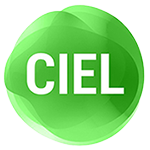CIEL | Supporting industry-led research and innovation for Aquaculture
Find out more about the successful seed funding projects
Background
In 2022 CIEL was delighted to offer the opportunity to access seed funding to catalyse research and develop a new process, product or service for the aquaculture sector. Applications were invited to support ideas that could help bridge the gap between the agri and aqua food sectors or define Life Cycle Assessment (LCA) tools for aquaculture.
Aquaculture is now the main source of protein from seafood globally, estimated to be worth over US$204 billion (2020), and the sector continues to outperform most other food production sectors in terms of annual growth. The UK is the 8th largest producer of farmed seafood with the sector estimated to be worth over £1.5 billion to the UK economy.
Scope
Through engagement with existing Members and the aquaculture industry, two broad themes for the funding were identified. These focus areas can be effectively integrated with the grand challenges that CIEL has previously identified: Climate smart food systems; Resource efficiency and precision nutrition; Endemic disease reduction; Antimicrobial resistance; Animal health & welfare; Food safety, quality, and integrity.
Themes
- Seaweeds – crossover from ‘aqua’ to ‘agri’
There has been much press coverage about the potential for Asparagopsis sp. algae to reduce Greenhouse gas (GHG) emissions from cattle. These claims make clear connections between the agri and aqua sectors of food production. However, large scale commercial cultivation and a thorough understanding of the effects of the algae are some way off. There are also questions around the long-term health benefits for cattle when fed seaweed-enhanced feed. The seaweed aquaculture sector in the UK is well established at farm level but production focusses largely on a few different varieties of Kelp and the supply chain is fragmented. Kelp has been shown to be an extremely versatile crop, but no links have been made to GHG emission reduction in cattle and the nutrient profile of farmed seaweeds is not fully understood.
2. Life Cycle Assessment and Blue Carbon
UK Government has committed to a legally binding target to reach Net Zero Carbon by 2050 and has established a Blue Carbon Evidence Partnership to progress understanding of carbon life cycle in aquatic environments. Within the aquaculture industry, pressure is being applied to minimise the environmental cost of production. A greater understanding of the implications of sourcing feed ingredients, powering work vessels, processing of products and transportation across the supply chain is needed to support the sector‘s sustainability claims. Much work has been done to move away from traditional fish feed ingredients that have a high environmental cost, but more can be done across the supply chain and in other sub-sectors of aquaculture production.
The call ran from 30 August to 3 October 2022.
Successful Applications
A project assessing the best cultivation methods for growing seaweed to feed to egg laying hens is among four innovative projects being supported by CIEL.
The projects in receipt of support include a seaweed protein biomass cultivation system project, run by seaweed start-up company, Seaweed Generation Ltd. This will explore different cultivation methods for different species of seaweed, while also assessing the palatability for feeding the seaweed to egg laying hens.
Other projects in receipt of funding include a study assessing the greenhouse gas emissions from Pangasius (Basa) production in Vietnam, the third most consumed fish in the UK. Another project will focus on the life cycle analysis of UK grown warm water prawns.
The final project is focused on enhancing the Life Cycle Assessment (LCA) of cleaner fish as a sustainable tool for sealice management, with improvements that could have positive impacts on the salmon industry in Scotland.
The four projects are due to be completed during 2023. Read more about the successful applications here.
For further information, or if you have any ideas for projects you need help with accessing funding for, please contact Martin Sutcliffe, CIEL Aquaculture Specialist, by completing the web enquiry form above.
Got a question about funding opportunities for aquaculture research?
Let us know what questions, ideas or thoughts you may have in the form below.


